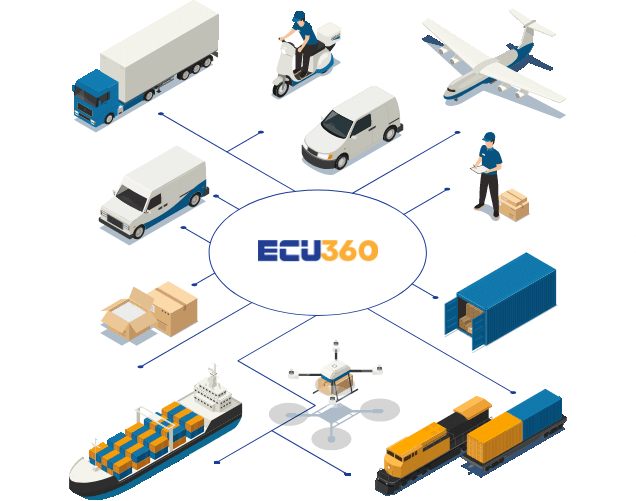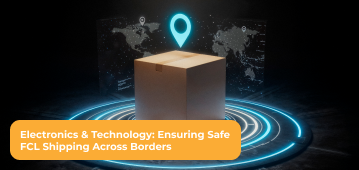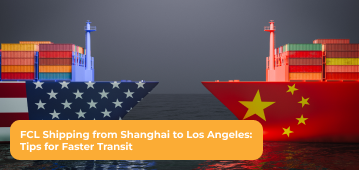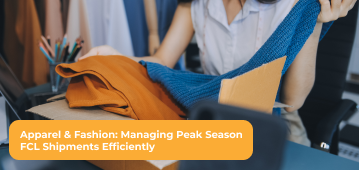Everything You Need To Know About LCL Consolidation
Businesses can choose either full container load (FCL) or less than container load (LCL) shipment options when choosing ocean freight cargo services. Businesses that can fill an entire container opt for FCL shipment, while those that can not usually opt for LCL shipment. In this option, the extra space that is not occupied by the business is used for other cargo, which is decided according to availability. The process of loading and unloading this type of shipment is known as LCL consolidation and deconsolidation.
The functionality of LCL consolidation
The process of LCL consolidation starts at the port. The cargo that is labelled LCL is moved from the inland container depot to a designated hub terminal. A team approved by the customs usually does this process. The Indian Customs also approved the LCL hub terminals, and as a result, LCL cargo can only be reworked in these specific terminals.
While LCL cargo distribution was relatively unpopular in the previous years, it has now gathered more attention. Businesses that wish to transport goods from one port to another at economical prices opt for LCL cargo shipping. Similarly, businesses that do not have enough cargo to fill up an entire container choose the FCL shipping option to opt for LCL instead of paying for the entire container.
What is an LCL consolidator?
Most cargo transports provide LCL consolidation shipments to ensure the business has little work. However, this is not a generalised inclusion. For transporters that do not provide these services, the LCL consolidation part of the loading is handled by groupage operators, also known as LCL consolidators.
One primary advantage for businesses to hire groupage operators is that the LCL consolidators are experienced in packing. As a result, they can find simple, time-efficient, and cost-efficient ways to fit the cargo.
More and more businesses are looking for LCL consolidators to help them save costs on ocean freight. However, many businesses experience problems because they do not know how to choose the right consolidator. Given our expertise in freight services, we can benefit from partnering with an LCL consolidator.
Positives of an LCL consolidator
There are three key benefits of an LCL consolidator.
Proficiency: Expertise is the first and most important criteria to consider when choosing an LCL consolidator. Dangerous goods, unique products, and delicate cargo require special handling. Furthermore, the consolidator needs to know different instructions regarding this cargo. Without this expertise, the cargo may be damaged. Therefore, before selecting an LCL consolidator, inquire about their expertise.
Expandability: Different ports have different demands, and as a result. Furthermore, ports may have peak and slow seasons depending upon their location. One key factor to consider is their scalability. Consolidators are highly scalable and can keep up with increased demands in packing and shipping, ensuring the cargo is delivered on time to the customer.
Cost-effectiveness: An LCL consolidator that collects cargo from multiple forwarders may be able to consolidate the LCL container faster, and as a result, the shipping may be more efficient. Without this efficiency, the cargo may sit at container freight stations until the container is full. This can cause a delay in shipments.
What to consider when choosing an LCL consolidator?
All businesses wish that their cargo would be delivered to the destination on time and without any damage. However, this can only be done if you have chosen the right LCL consolidator. The process of cargo transportation begins with cargo pick up from the business and ends when the cargo reaches the customer.
This also means the system in place for the entire cargo transit should be seamless and efficient. An inefficient system would take time and cause delays, which means loss of the business and not the consolidator. As a result, choosing the right consolidator is the most important thing.
Most businesses look at expertise, cost, and the network of the LCL consolidator. While these are important factors to consider, a more important factor to consider is the organisation structure of the consolidator. Without an efficient organisation structure, the cargo would be in transit for a lot longer than necessary.
Who to choose?
As is demonstrated in this article, the right LCL and freight partner is necessary to ensure your cargo reaches the required destination on time. If you are looking for a trustworthy partner, ECU360 is the best choice. We provide end-to-end shipping and personal logistics services. This includes providing accurate quotations, bookings, and shipping instructions. We have helped thousands of businesses complete shipments worldwide without any damage to the cargo.
Like





Comments